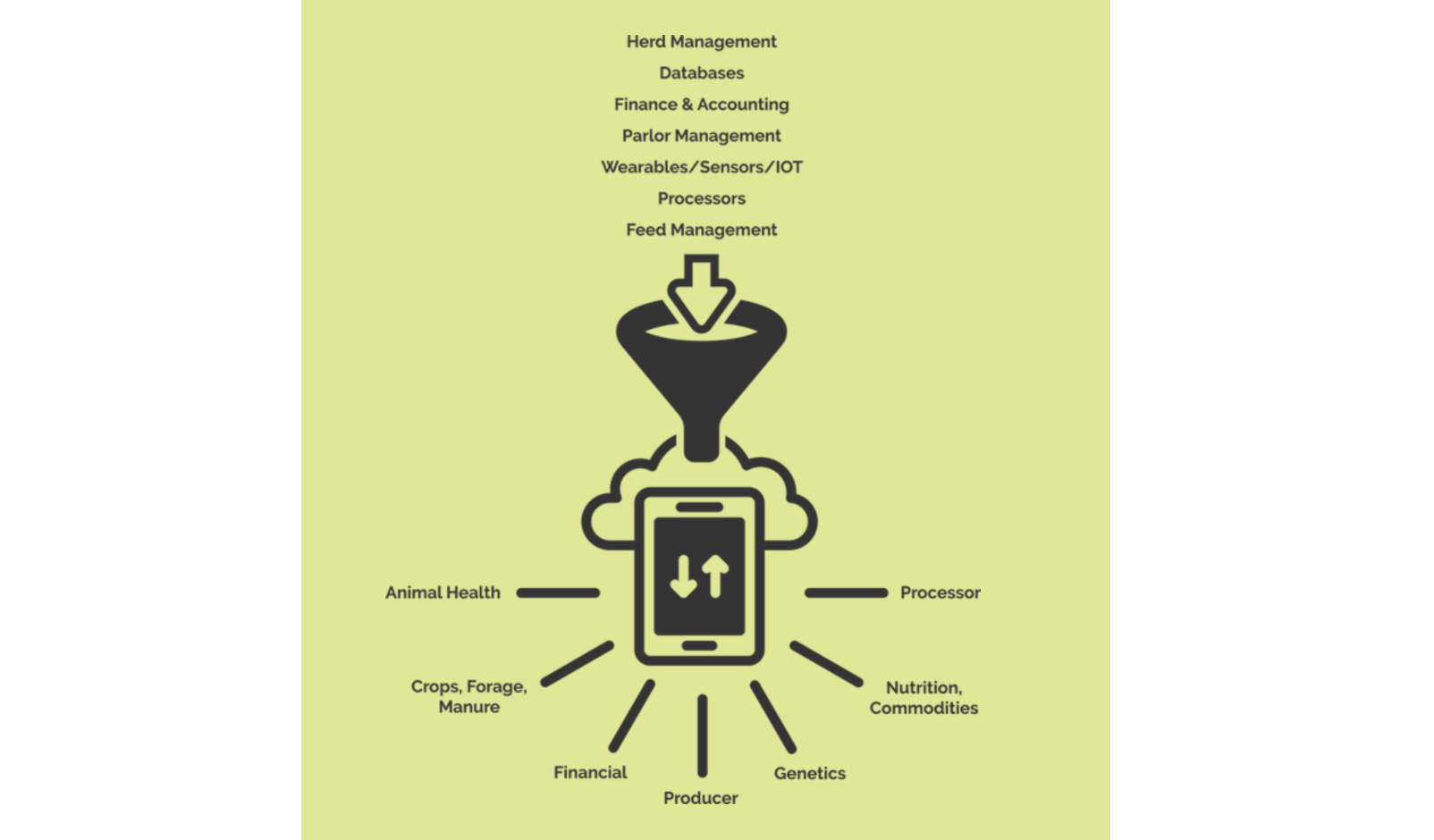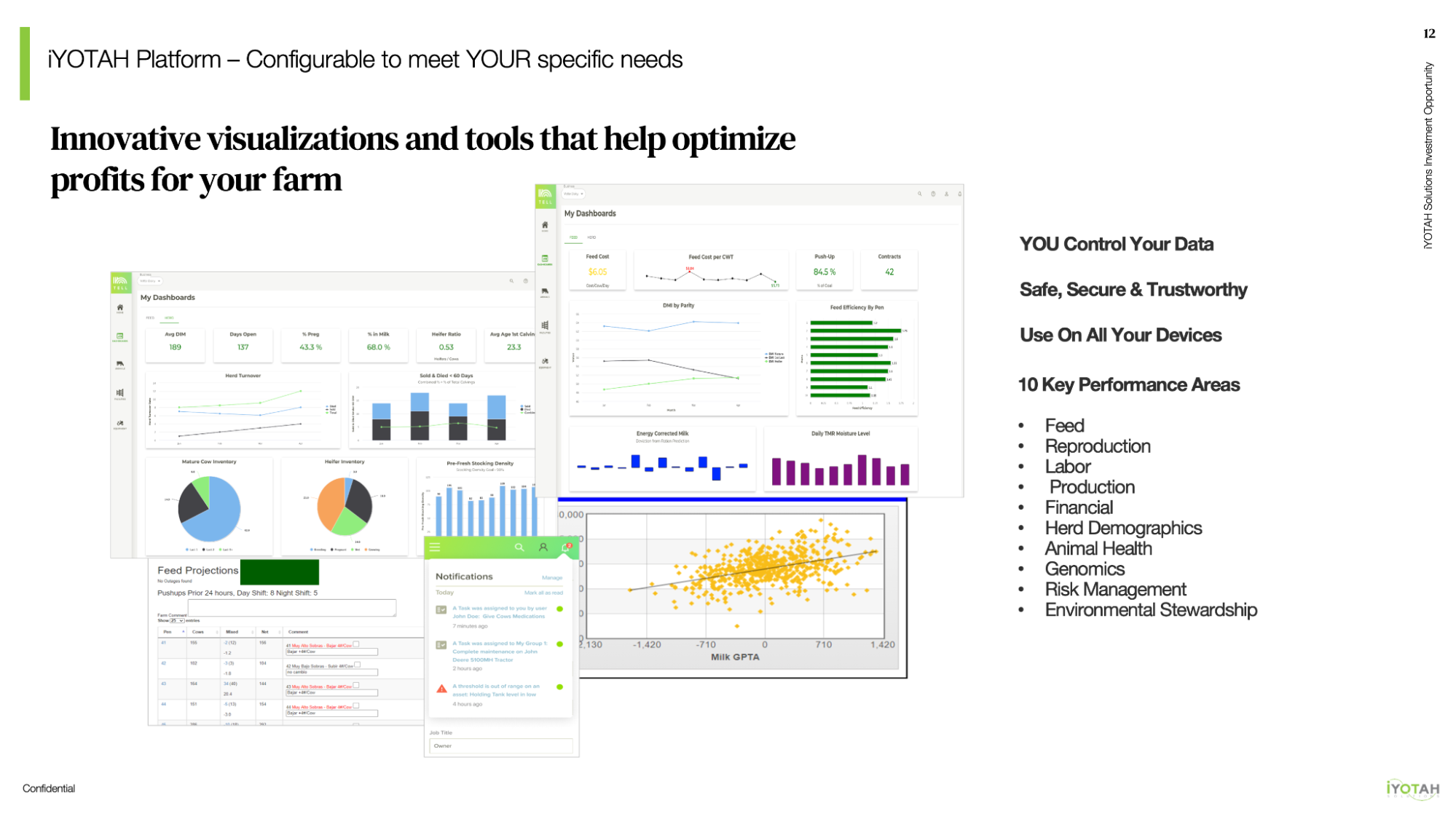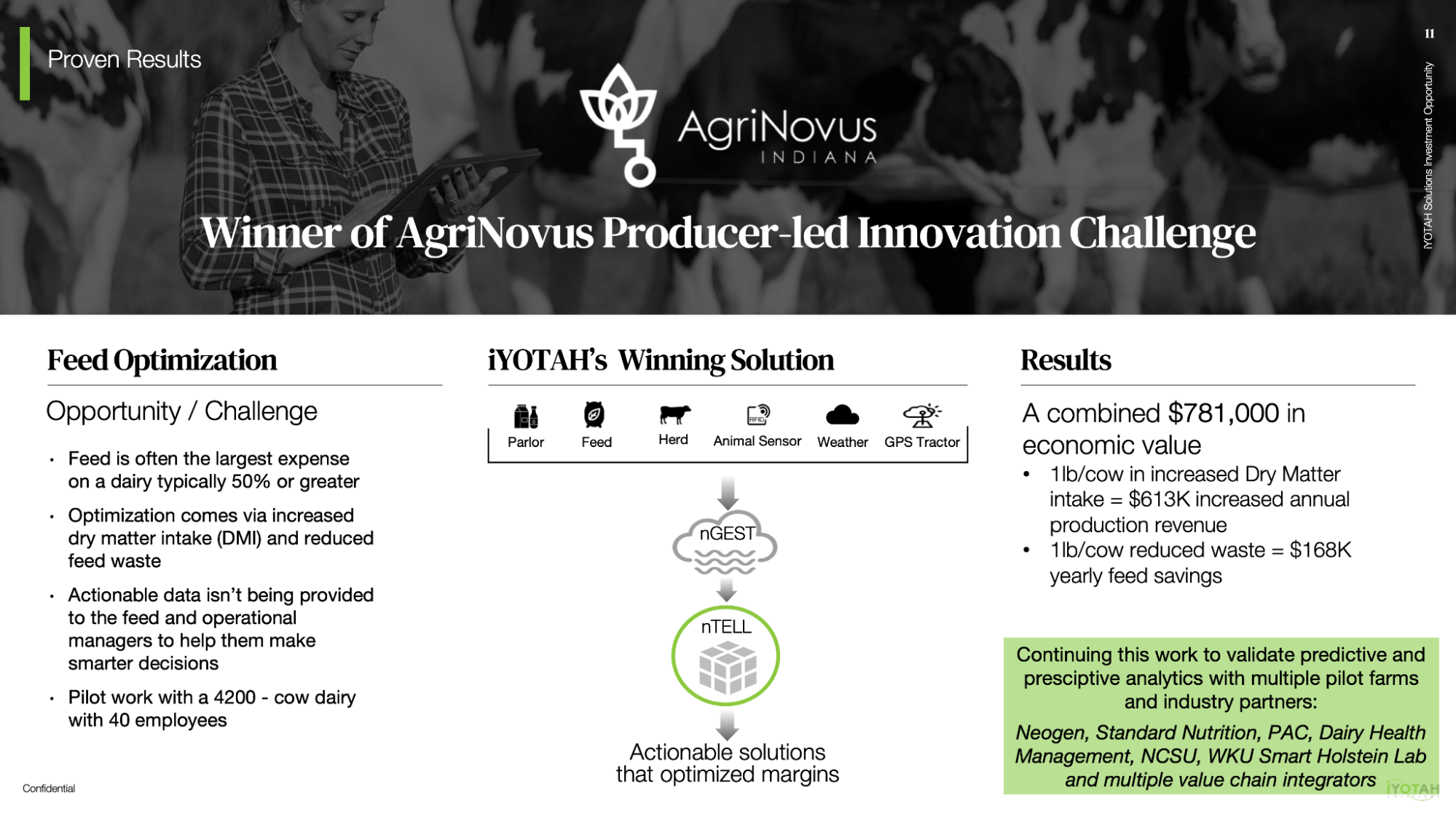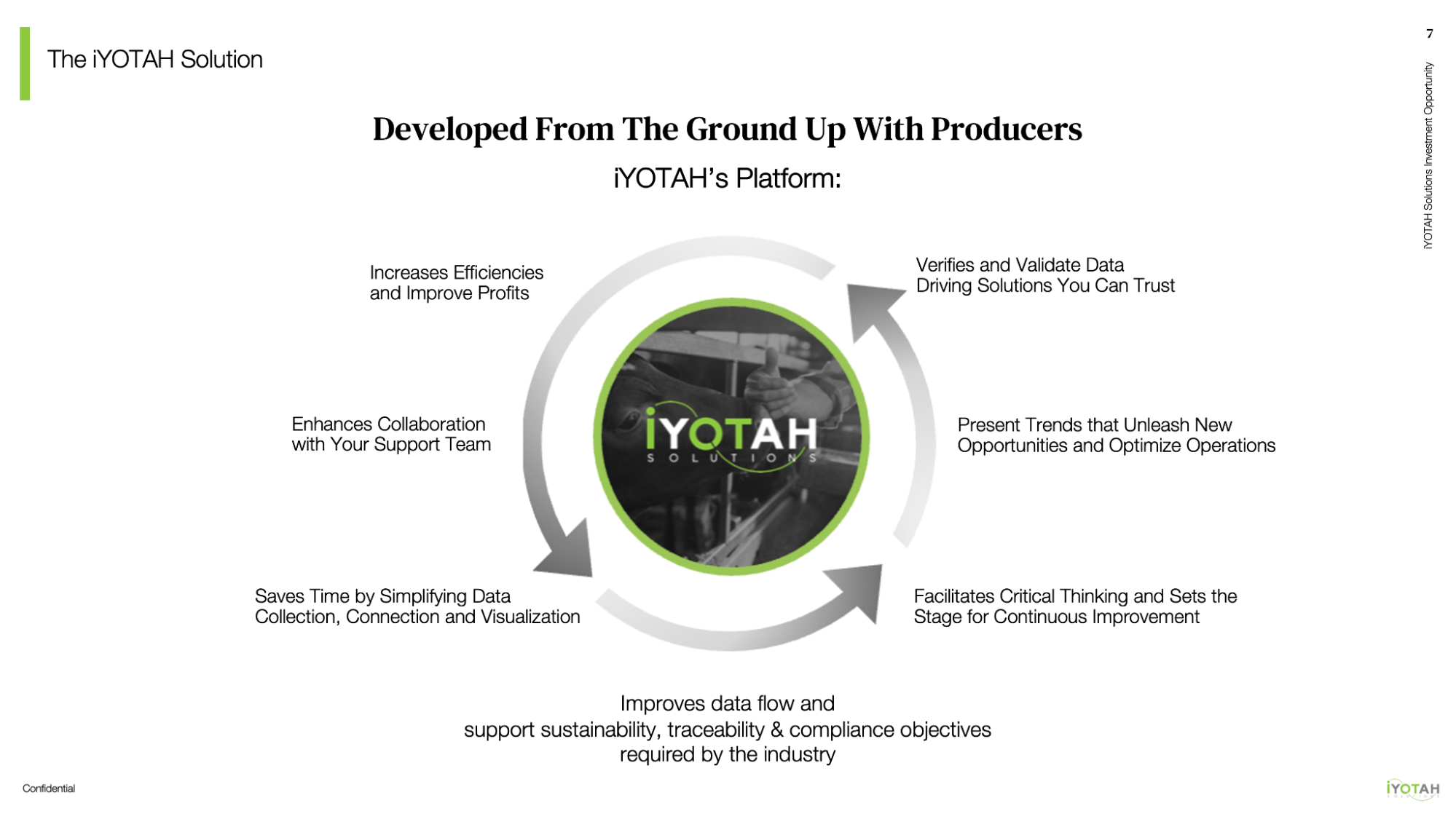The American dairy trade is a mighty one. America’s 32,000 dairy farmers not solely produce the most milk on this planet, they’re additionally essentially the most environment friendly, producing 23 thousand kilos of milk per cow per yr — nearly 20 occasions the burden of a mean (1,200 pound) dairy cow.
For his or her genetically sturdy herds, wholesome cows, excessive yields, even more and more inexperienced operations, farmers can credit score each agricultural science in addition to knowledge science. American dairy farmers have been early adopters of utilizing knowledge to enhance their operations, to trace the genetic markers of their livestock, to observe forecasts for climate and feed costs, putting in IoT sensors to trace the cow’s actions, and recording precise milk manufacturing numbers.
However as in most industries, few farmers have saved up with the newest advances in knowledge analytics, particularly within the real-time and streaming enviornment, hurting efficiencies and income.
“To develop the [dairy] trade additional,” mused main dairy trade analysis group, IFCN, in late 2021, “higher connectivity and digitalization” are wanted.
That is what iYOTAH Options goals to ship. In August of 2019, the Colorado-based firm launched and commenced growth of a real-time SaaS analytics platform to carry digital transformation to American dairy farmers.

Grabbing Information By the Horns
What determines how a lot milk a cow will produce? Its primary DNA for one, but in addition how its genes truly translate into bodily traits, or its phenotype. The surroundings it lives in is essential — how well-fed it’s, if it will get chilly or sick, how a lot train and exercise it will get, and so on.
Farmers tracked that knowledge by hand when dairy farms have been sufficiently small for them to be on a first-name foundation with their cows. Now not. The common farm retains 234 cows right this moment, however the majority of the milk comes from herds which might be anyplace from 5000-100,000. To handle them successfully, farmers have lengthy used PC-based functions to trace key knowledge. Extra just lately, farmers have began automating the method of monitoring and knowledge entry by utilizing “Fitbits for cows” and different IoT sensors to trace their cows’ motion, fertility, feed consumption, milk manufacturing, and even their conduct.
“One of many many issues I discovered once I received into this trade was that it’s true: blissful cows do make extra milk,” stated Pedro Meza, VP of engineering at iYOTAH.
Nonetheless, as farms proceed to develop and revenue margins proceed to skinny, dairy farmers are searching for extra environment friendly and highly effective methods to make use of their knowledge. However they’ve been stymied. Most proceed to make use of older Home windows software program that observe particular areas, comparable to herd information and breeding historical past, feed, or milk manufacturing, together with samples of fats and protein content material that decide the milk’s market worth. “Different knowledge, comparable to funds, are tracked in Excel or Quickbooks,” stated Meza, and even stay stuffed as “receipts within the shoebox.”
“Dairy farms are multimillion greenback operations, but farmers inform us that 30 % of their time is spent on gathering their knowledge,” Meza stated.
When knowledge is siloed and non-digitized, it will probably’t be analyzed for historic developments, nor can it’s mixed to make smarter selections. For example, becoming a member of two knowledge tables exhibiting hourly temperatures and humidity and the way a lot feed the cows have consumed might enable farmers to enhance feeding efficiencies and optimize milk manufacturing.
Tipping Level
iYOTAH got down to construct what right this moment’s farmers want: a contemporary, unified answer platform that offers them a high-level view of their operations, real-time alerts with controllable thresholds, and drill-down interactivity for combining and exploring knowledge with minimal latency.

Somewhat than forcing farmers to rapidly abandon their tried-and-trusted functions, iYOTAH determined to create a set of software program brokers that set up themselves on the farmers’ PCs. Each predetermined time interval, the brokers would scan the functions for newly-entered or uploaded knowledge — every part from highly-compressed herd genetic knowledge, to dimensional fashions. When a change is detected, the info is ingested into an information lake hosted on Amazon S3. There, the info is transformed, tagged with metadata, cleaned, and de-duplicated in preparation for queries.
For a high-performance database that might rapidly serve the queries to their dashboards, iYOTAH checked out a number of choices. They demoed however rapidly eradicated Snowflake. Additionally they checked out utilizing AWS-hosted Spark as its database engine and serving up queries to a Tableau dashboard. Meza and his staff additionally voted towards this strategy, saying it locked them into an costly infrastructure that “didn’t fairly meet their long-term wants.”
In the long run, iYOTAH determined to construct its utility from scratch and use Rockset because the real-time question engine. Although this is able to entail larger funding in constructing out their dashboards, iYOTAH “wished to be in charge of our personal roadmap,” stated Meza. And Rockset made the method of constructing the info utility and pipelines a lot sooner. With Rockset’s built-in connector to S3, enabling computerized exports from S3 to Rockset was simple. Information is uploaded to Rockset from S3 each 3-5 minutes.
Rockset additionally powerfully helps SQL, with which all of Meza’s builders have been consultants. Rockset additionally boasts time-saving options comparable to Question Lambdas — named, parameterized SQL queries saved on the Rockset database that may be executed from a devoted REST endpoint. This makes queries simpler for builders to handle and optimize, particularly for manufacturing functions.

All of this knowledge feeds a single utility divided at the moment into ten dashboards that may be custom-made displaying a complete of 150 totally different visualizations with the entire knowledge served up by Rockset. One dashboard shows near-real-time pattern knowledge of its milk’s dietary content material (fats and protein ranges), which determines the milk’s market worth. One other focuses on breeding, monitoring the cows by being pregnant and past, notifying farmers when it’s time to breed them after which utilizing genetic knowledge to match them with the appropriate sires for extra milk manufacturing.
Rockset additionally powers real-time monitoring of animal well being, and monitoring feed and manure ranges. The farmers can configure alerts in order that they’re notified if the temperatures rise or drop under a sure mark — key as chilly or excessive warmth for cows trigger much less milk manufacturing and may trigger a rise in sickness. Information from every of those charts may be correlated or overlayed with different charts. Farmers may drill down into their charts in actual time to discover and get questions answered interactively.

Shifting Ahead
Utilizing the iYOTAH platform, considered one of their take a look at farms was in a position to combine all of its operational knowledge for the primary time so as to analyze and optimize its feed effectivity. That helped the farm reap $781,000 in elevated income from better-fed cows that produced extra milk and financial savings from much less wasted feed, for which the iYOTAH staff have been acknowledged (above) because the winner of an Indiana state AgriBusiness Innovation Problem.
This real-time dashboard for farmers is simply the start. iYOTAH is working with the Nationwide Dairy Herd Info Affiliation (NDHIA), whose members personal two-thirds of the 9 million dairy cows in the USA. NDHIA and iYOTAH have formalized a strategic partnership. They are going to be working collectively to ship worth by iYOTAH’s platform to NDHIA’s membership and the trade as a complete.

iYOTAH can be constructing a set of instruments to supply proactive recommendation and suggestions to farmers. This might be based mostly totally on machine studying evaluation that mixes disparate knowledge units, comparable to herd knowledge and breeding knowledge. iYOTAH is collaborating with prime universities in Agriculture and Information Science, like Purdue and North Carolina State College, to include superior analysis fashions that interpret disparate knowledge and construct predictive and prescriptive fashions for producers.
“We’re not simply attempting to mixture knowledge, but in addition apply trade and skilled information to include higher choice making,” Meza stated.
iYOTAH can be constructing knowledge pipelines that may ingest knowledge into Rockset straight from IoT sensors, skipping the S3 staging space, to reduce latency for real-time alerts.
iYOTAH’s present platform constructed round Rockset is targeted on the dairy trade, however will rapidly be deployed into different segments comparable to beef, pork and poultry.
“Now we have an information pipeline and platform that may be utilized for all animal livestock and may have important affect on the meals provide chain as a complete” Meza stated.

